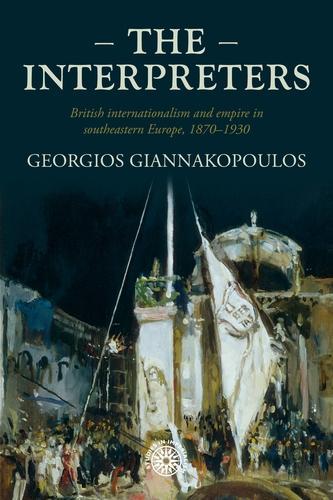
The Interpreters: British Internationalism and Empire in Southeastern Europe, 18701930
(Hardback)
Publishing Details
The Interpreters: British Internationalism and Empire in Southeastern Europe, 18701930
By (Author) Georgios Giannakopoulos
Manchester University Press
Manchester University Press
28th January 2026
United Kingdom
Classifications
General
Non Fiction
Colonialism and imperialism
Physical Properties
Hardback
296
Width 156mm, Height 234mm
Description
The book offers a new interpretation of the cultural and intellectual exchanges between Britain and southeastern Europe in an age of imperial transformation. It considers systematically the question of the management of ethnic difference in multinational imperial states as diverse as Britain, Austria-Hungary and the Ottoman Empire. It traces the regional experiences and impact of British scholars and public intellectuals steering through competing nationalisms and translating regional national questions to British and international audiences. The emphasis on past attempts to reconcile liberal democracy and
nationalism with imperial rule continues to resonate in our day as intellectuals confront the challenges presented the rise of ethno-nationalist politics and shifting place of Britain in Europe.
Reviews
'This important new study shows the connections between the national question in southeastern Europe and British imperialism. An intellectual history of the development of liberal views on the minority question, it helps explain why internationalism took the form that it did after the First World War and how that mattered to both Britain and southeastern Europe.' Michelle Tusan, President, North American Conference on British Studies
'The Interpreters offers a fascinating group portrait of the individuals who shaped Western perception of southeastern Europe. With a sharp eye and keen sense for historical convergence, Giannakopoulos shows how these nineteenth-century British intellectuals formed and changed their own views of the region through contact with its people and artifacts, as well as through their often-intimate personal relationships with one another, and in relation to the geopolitical aspirations and fantasies of Great Britain. Their interpretations are clearly still with us, making it all the more important to apprehend their origins and trajectory into the turbulent twentieth century.' Holly Case, Professor of History, Brown University
Author Bio
Georgios Giannakopoulos is Lecturer in Modern History at City, University of London
